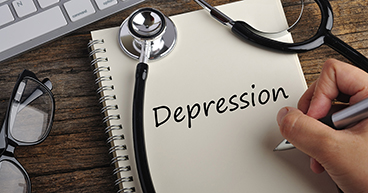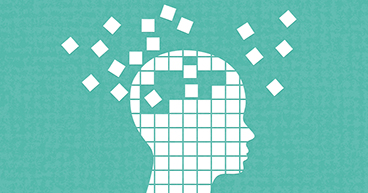


185 Posts

April 6, 2017
The dangers of fake medical newsIn today’s busy news environment—with its 24-hour story cycles, social media platforms and flood of information—phony medical news spreads like a flu virus.

March 21, 2017
Fatigue: A common complaint among cancer patientsWhen you’re healthy and having trouble keeping your eyes open in a mid-afternoon meeting, getting an extra hour or two of sleep may be all it takes to renew your energy. When you have cancer, though, rest often isn’t enough.

March 9, 2017
8 healthy habits for better sleepWhen you don’t get enough sleep, you’re more prone to excessive fatigue and a decrease in cognitive function, especially relating to memory.

March 7, 2017
Cancer-related depression: What is it and what can you do about it?It’s important to spot the signs of cancer-related depression early so you can keep it from affecting your quality of life, and, possibly, even your treatment outcomes.

March 2, 2017
Eating lots of grilled meats may affect the chances of surviving breast cancer, study suggestsWhile eating meat fresh off the grill may sound delicious, a recent study suggests breast cancer survivors may want to avoid large amounts of grilled, barbecued or smoked meats because of the potential health risks.

February 16, 2017
Treating malnutrition starts by identifying its cause, and taking it seriouslyBecause malnourished patients may become too sick to continue treatment or may experience slower recovery rates, getting the nutrients you need should be a top priority. A number of tools are available to help.

February 9, 2017
Study finds 'chemo brain' persists after treatment in breast cancer patientsChemo brain symptoms include lapses in short-term memory, difficulty remembering names and dates and problems concentrating. Research has linked memory issues to certain chemotherapy drugs prescribed to treat many types of breast cancer.

January 10, 2017
How to tell your boss and co-workers you have cancerSharing a cancer diagnosis isn’t easy. It is normal to be nervous, especially if you don’t know how your supervisors or co-workers will react. Prepare yourself for a wide range of responses and emotions. By sharing your news, you may find you receive the support and understanding you need to help you get through cancer treatment.

January 5, 2017
Addressing malnutrition: The silent diagnosisMalnutrition doesn’t only occur in underweight individuals. Even an overweight or obese individual who develops a severe illness or experiences a major traumatic event is at risk for malnutrition and frequently needs and benefits from intense nutrition intervention.
Guidelines
The information contained in this blog is not intended nor implied to be a substitute for professional medical advice. Always seek the advice of your physician or other qualified health provider prior to starting any new treatment or with any questions you may have regarding a medical condition. Nothing contained in the blog is intended to be used for medical diagnosis or treatment of any illness, condition or disease.